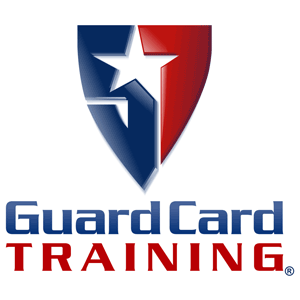
Requirements for an Ohio Security Guard Identification Card
Basic Requirements for an Unarmed Security Guard in Ohio
- Must be at least 18 years old.
- United States citizen or resident alien.
- May require proof of high school diploma or equivalent.
- No felony convictions or misdemeanors associated with violence (which includes domestic), drugs (use or sale), theft, or fraud.
- Good moral character.
- Successfully pass a background check.
- No mental disorders or defects that will prohibit performance of duties.
- Employed by a private security company and under supervision from a licensed patrol officer.
- Fingerprint card.
Registration for Ohio Security Guard Identification Card
Licensed security companies (employers) must register employees.
- Employee Registration Application (by employer).
- Registration fee (by employer).
- A passport style photograph that measures two by two inches, taken within one year of submission.
- Employee's name.
- Employee's date of birth.
- Employee's social security number.
- The application must be submitted no later than seven calendar days after the employee's name is posted on the licensee's payroll records.
- Fingerprint card.
- Veteran or spouce of veteran status.
Source: 4501:7-1-09 Registration of employees.
Fingerprinting/Background Check
Ohio Bureau of Criminal Investigation/Federal Bureau of Investigation (BCI/FBI) fingerprint background checks are required for registrations.
All applicants must submit fingerprints electronically for a background check. Schedule an appointment with the Department's approved vendor, Webcheck, by visiting their web site at: https://www.ohioattorneygeneral.gov/Business/Services-for-Business/WebCheck/Webcheck-Community-Listing. Use the code "4749.06 Employment as Private Investigators/Security Guards" when prompted.
The cost for the digital fingerprints is $70. Plan to arrive at the center 15 minutes before the scheduled start time of the appointment for check-in.
All background results must be "Direct Copied" to PISG - Ohio Department of Public Safety.
Registered employees are continuously monitored by the state's Rapback system, which notifies PISGS if a guard or investigator is arrested.
Fingerprints are only valid for 30-days.
Convictions and Other License Disqualifiers
If the results of the criminal records check described in division (B)(2)(a) of § 4749.06 of the Revised Code indicate that the employee applying for registration may have a criminal record in one or more jurisdictions or in one or more states other than Ohio, the director may make further inquiries and request further information from the applicant in order to complete the investigation of the applicant.
For purposes of § 4749.03 and 4749.04 of the Revised Code, the following offenses are disqualifying offenses:
- Aggravated burglary as set forth in section 2911.11 of the Revised Code;
- Breaking and entering as set forth in section 2911.13 of the Revised Code;
- Burglary as set forth in section 2911.12 of the Revised Code;
- Deception to secure writing as set forth in section 2913.43 of the Revised Code;
- Endangering children as set forth in section 2919.22 of the Revised Code;
- Forgery as set forth in section 2913.31 of the Revised Code;
- Identity fraud as set forth in section 2913.49 of the Revised Code;
- Misuse of a credit card as set forth in section 2913.21 of the Revised Code;
- Misuse of the law enforcement automated database system (LEADS) as set forth in section 2913.04 of the Revised Code;
- Passing bad checks as set forth in section 2913.11 of the Revised Code;
- Receiving stolen property as set forth in section 2913.51 of the Revised Code;
- Safecracking as set forth in section 2911.31 of the Revised Code;
- Theft as set forth in section 2913.02 of the Revised Code;
- Voyeurism as set forth in section 2907.08 of the Revised Code;
- Wiretapping as set forth in section 2933.52 of the Revised Code;
- An attempt or conspiracy to commit or complicity in committing any of the offenses listed in paragraphs (B)(1) to (B)(15) of this rule, if the attempt, conspiracy, or complicity is a felony;
- A violation of any former law of this state, any existing or former law of another state, existing or former law applicable in a military court or an Indian tribal court, or any existing or former law of any nation other than the United States that is or was substantially equivalent to any of the offenses listed in paragraphs (B)(1) to (B)(15) of this rule.
(C) For purposes of division (B)(3) of section 4749.06 of the Revised Code, "disqualifying offense" means a felony conviction or plea of guilty to any of the offenses listed in paragraphs (B)(1) to (B)(17) of this rule and a conviction or plea of guilty to a crime of moral turpitude, as that term is defined in section 4776.10 of the Revised Code.
Source: 4501:7-1-19 Disqualifying offenses.
Information provided on this site is educational. It is not legal advice. Training does not guarantee licensing or employment.
